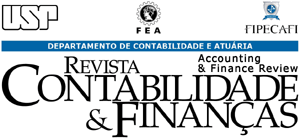This study compares the use of forward-looking and contemporary performance measurement in incentive contracts in the presence of the horizon problem. To do this, we used a single-factor experiment between pre- and post-treatment subjects, with a control group. The study had the participation of 76 undergraduate students, divided into 3 groups, and it registered that, when compared to the control group and the treatment group linked to contemporary performance measurement, the participants under the contract that rewarded having a forward-looking measurement as a basis acted more congruently with the long-term goal set for the experimental task. Consistent with predictions of the agency theory, the main finding of this research suggests that economic profit helps mitigating the problem of manage rial myopia, indicating that incorporate it to contracts motivates agents to act more consistently with the company's long-term goals, even in the presence of the horizon problem. Besides, the study registered new evidence of the inadequacy of formulating incentive contracts having distorted performance measurements as a basis, such as book profit.
incentive contracts; performance measurement; horizon problem


